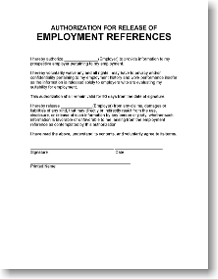 Aside from resumes and cover letters, which are discussed in the Resumes, Cover Letters and Business Cards chapter, you should have another digital or paper folder with the following elements: recommendations, performance evaluations, references, work samples and portfolios. We explore each of those subjects in the following section.
Aside from resumes and cover letters, which are discussed in the Resumes, Cover Letters and Business Cards chapter, you should have another digital or paper folder with the following elements: recommendations, performance evaluations, references, work samples and portfolios. We explore each of those subjects in the following section.
Letters of recommendation are written evaluations of your work performance and work habits. Your present or previous supervisor, manager or team member usually writes them at your request. Employers have no obligation to write these recommendations and may not due to liability issues and company policy, but they may offer a reference letter if you have been a good employee.
If you are a student and have little or no work experience, you can ask your instructor, internship supervisor, adviser, mentor, coach or volunteer coordinator to write letters of recommendation. Without much work experience, especially in jobs meaningful to their careers, students will find the best method of demonstrating their skills may be through having others attest to them in letters of recommendation.
If you are new to the labor market with no paid-work experience, you can ask neighbors, volunteer coordinators, community leaders, congregation members or anyone else who knows you and your work ethic to write a letter of recommendation. The employer will wish to know how long the person has known you, the quality of your work or participation, dedication, skills and work habits.
Don't be surprised if a busy reference asks you to write the first draft of the letter before it is edited and signed. It's a common practice, and feel free to oblige by highlighting in the letter your skills and achievements while working in that job or internship. The reference has the right to add or edit out anything that is not correct before signing it.
A performance evaluation is a formal, written review or evaluation of your work. It usually covers a specific period of time and includes the quality, quantity, work habits and attitude with which you have performed your job. It can also state your promotions, demotions and reprimands. Positive performance evaluations can be included with your resume or application to bolster your credentials and increase your opportunities of securing a job.
Choose your references with care. Someone influential in your community or in a well-known business may be an effective reference but should not be selected for this reason alone. Look for people who honestly know you and will speak objectively. Avoid references, such as your spouse or a parent, where the potential employer may assume bias.
Avoid references that may be controversial or may concern employers. Examples of these types of references are clergy or social workers. You may even want to use different references for different employment opportunities.
Generally speaking, four types of references can be called upon for recommendations:
When using people as references, get their permission first and tell them about your job search and the type of job opportunities you seek. Don't blindside them. Ask if they would be comfortable recommending you.
Find out if references would prefer to be contacted at work or home. Find out the best time to reach them so this information can be given to a prospective employer. For each reference, you may need to provide the person's occupation and phone number, how long you've known each other and the nature of the relationship.
Send your references a thank you note when you know they have given you a recommendation.
